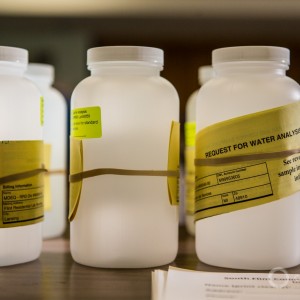The Stream, February 17: El Nino Brings Water and Food Shortages to 100 Million People
The Global Rundown |
Droughts and floods linked to the El Nino weather phenomenon are causing water and food shortages for millions of people around the world. Farmers in Africa face critical water challenges as they seek to boost production and yields, and Zambia is struggling to address hydropower shortages while keeping electricity bills affordable. Water bills in Flint, Michigan, are the highest in the United States, a new study found. Drinking water supplies for thousands of people in Ireland are contaminated with compounds that have been linked to cancer.
“We depend on the farm for all our needs. When the harvest is not good, there is no food sometimes.” –Josephine Mbinya, a farmer in Kenya. Improving water management and technology is key to increasing agricultural production in African countries, many of which still rely on food imports. (Bloomberg)
By The Numbers |
100 million people Number in Africa, Asia, and Latin America who face food and water shortages due to droughts and floods linked to El Nino. Guardian
$340 million Amount Zambia will need to prop up its state-owned electrical utility this year if it does not increase electricity rates for consumers. The country, which relies on hydropower, has been experiencing severe power shortages due to a drought. Bloomberg
Science, Studies, And Reports |
Residents of Flint, Michigan, paid an average of $864 per year for water service, making the city’s water bills the highest in the United States, according to a study released by the nongovernmental organization Food and Water Watch. The city is still reeling from a lead-contaminated drinking water crisis. Detroit Free Press
On The Radar |
Excess levels of trihalomethanes, a byproduct sometimes created during drinking water treatment, may have affected the water supplied to more than 400,000 people in Ireland, according to government documents. Exposure to high levels of trihalomethanes has been linked to some cancers, and the compounds are regulated by the European Union’s drinking water directive. Irish Times
A news correspondent for Circle of Blue based out of Hawaii. She writes The Stream, Circle of Blue’s daily digest of international water news trends. Her interests include food security, ecology and the Great Lakes.
Contact Codi Kozacek







Leave a Reply
Want to join the discussion?Feel free to contribute!